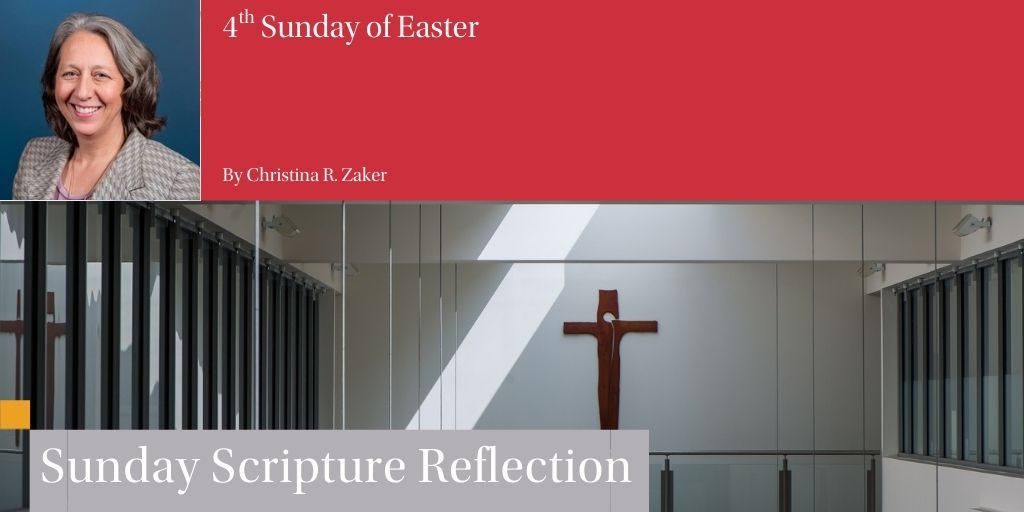
Readings:
Acts 13:14, 43-52
Revelation 7:9, 14b-17
John 10:27-30
Our readings this week ask a persistent question – who is in and who is out?
In Acts of the Apostles, Paul and Barnabas are traveling, urging people to “remain faithful to the grace of God.” They “spoke out boldly” and subsequently were expelled from Antioch, having to “shake the dust from their feet” on their way out. A couple questions come to mind in the tension of this first reading: Who was Jesus’ message meant for; who is destined for salvation? and What are the risks for disciples that are bold and faithful?
The second reading from Revelations seems to immediately respond with a hint at the martyr like sacrifice of bold discipleship to “survive the time of great distress” but also offers a claim that diversity is necessary for salvation history. Standing before the Lord was “a great multitude, which no one could count, from every nation, race, people and tongue.” This seems to render the question of “who’s in or out” irrelevant – every nation is in.
This past week CTU awarded Fr. Bryan Massingale the Blessed are the Peacemakers Award. In his talk at the banquet, he gave a hunch as to why his book, Racial Justice in the Catholic Church was purged from the library of the United States Naval Academy this past month.
“The book is ‘dangerous’” he noted, because it claims that “racial diversity in the human family is a divine gift that mirrors the inner life of the Trinity, a Trinity that appreciates difference.” The reading from Revelations makes the same bold claim, that diversity is a divine gift and necessary for salvation. We need each other in our beautiful diversity. To live in Easter Joy is to recognize that all are called to the banquet.
When we are faced with divisive questions of belonging and privilege, we are asked to be people who hear the voice of God, proclaim it boldly and respond with inclusive love lifting any at the margins and recognizing that our salvation, all of ours, is bond up with one another.
The Gospel from John proclaims, “The sheep hear my voice; I know them, and they follow me.” These short phrases are packed with meaning. What does it mean to hear the message? Do we really want to go where the Good Sheperd is guiding us? Pope Francis, of blessed memory, encouraged his fellow bishops to “smell like the sheep.” How do the sheep know God’s voice except through proximity: profound incarnational presence. Which brings us disturbingly back to the question of who is in and who is out… If we are urged to stand at the margins – we are in fact required to take sides – to stand with those outside the centers of power. When the question of who is in and who is out factors in the question of power, we are compelled, with humility and courage, to choose proximity. Catholic Social Teaching claims that Catholics must have an “option for the poor.” This is akin to smelling like the sheep, or being a shepherd whose voice is recognized by the flock.
These readings and the examples of Pope Francis and Fr. Massingale – lives lived through courageous inclusion – compel each of us to consider the Resurrection we long to see. Is it one that draws a line around power to hold it close? Or is it one that embraces all with the hope of drawing closer to one another and to our loving God? Discipleship takes risk, takes being uncomfortable, takes getting our hands deep into the stuff of life and recognizing the sacredness of each diverse encounter. Paul and Barnabas urged people to “remain faithful to the grace of God.” May each of us as we move through this Easter Season recognize God’s grace in those we encounter daily. May the Good News we proclaim as people of God, invite others to hear the Shepherd’s voice and follow.
By Christina R. Zaker
